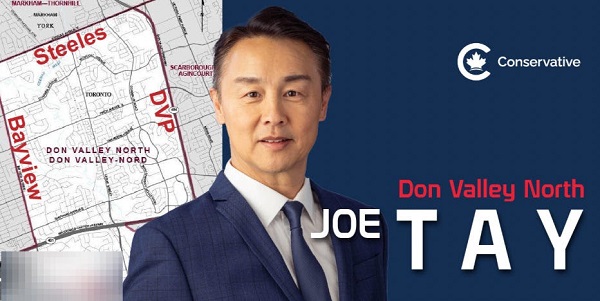Opinion
Ostriches on the runway
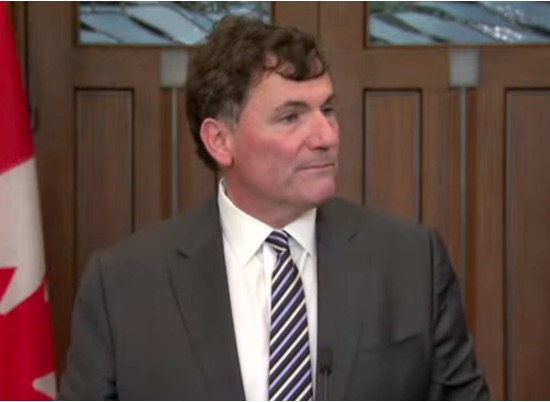
|
|
Dominic LeBlanc says it’s time to rise above partisanship. Watch the skies
“The protection of our democracy demands that we rise above partisanship,” Dominic LeBlanc told reporters Saturday morning in the lobby of the West Block’s backup House of Commons. “Canada isn’t the only country facing the threat of foreign interference. Many of our allies are, even now, having discussions on ways to protect their democracies against this scourge. If they can have reasoned and constructive discussions on this subject, Canada should be able to do the same. That’s why the prime minister tasked me [on Friday] with consulting, over the coming days, experts, legal scholars and opposition parties on what the next steps should look like — and determine who best may be suited to lead this public work.”
You can tell the Trudeau government is really badly rattled when it starts doing what it should have done in the first place. “Consulting experts, legal scholars and opposition parties” was an option in March, when Trudeau decided instead to lay the foundation for Friday’s debacle. Talking to people — in the old-fashioned sense of (a) showing the slightest interest in what they have to say and (b) allowing it to inflect your actions in any perceptible way — is always an option. Nor is it in any danger of getting worn out through overuse, where this government is concerned.
Paul Wells is a reader-supported publication. To receive new posts and support my work, consider becoming a free or paid subscriber.
“It’s our government’s hope that the opposition parties will treat this issue with the seriousness it deserves,” said LeBlanc, whose boss ignored a string of reports from the National Security and Intelligence Committee of Parliamentarians and whose early-warning system for news of Beijing’s intimidation against a sitting MP was named Fife and Chase.
LeBlanc opened the floor to questions. The first: Shouldn’t there be a public inquiry? “A public inquiry has never been off the table,” he said. “All options remain on the table.” This was change masquerading as continuity. Johnston took a public inquiry off the table three weeks ago. Trudeau accepted the un-tabling. By putting it back on the table, LeBlanc was bowing to what may be the inevitable conclusion of the last few days: that the opposition parties, by adapting a common line in favour of a full inquiry, may have made one inevitable.
Another characteristic of this government is that it views its tribulations as tests of other people. The short odyssey of David Johnston, in other words, is a learning opportunity for us all. “My job,” LeBlanc said, “is to, in the very next few days, in short order, ask opposition leaders to take this matter seriously. Not just to simply say, ‘Oh, there has to be a public inquiry.’ OK: Make suggestions about who could lead this public inquiry. What would the terms of reference be? What do they see as the timelines? How do they deal with the obvious challenge of respecting Canadian law that protects some of the most sensitive intelligence information?”
I should say I take LeBlanc at his word when he claims to be seeking input in good faith. As a general rule, his arrival tends to mark an improvement in this government’s handling of a difficult file. But just to be on the safe side, it’s worth saying some obvious things clearly.
The opposition parties should give input when asked. It’s useful for each of them to go through the exercise of conceiving in detail the proper handling of the election-interference file. And it’s good of the government to ask, albeit way later than it should have.
But everything LeBlanc plans to ask them — whether to have an inquiry, who should lead it, its mandate and deadlines and legal justification — remains the responsibility of the government. If the opposition parties chicken out, or play dumb games, or deadlock, or suggest people who decline to participate, the responsibility for designing a workable policy remains the government’s. I’m pretty sure Trudeau volunteered for the job of prime minister. In fact I’m sure there was something in the papers about it. He is in this fix now because he wanted Johnston to make his decisions for him. As I wrote nearly three months ago.
Thank you for reading Paul Wells. This post is public so feel free to share it.
LeBlanc kept saying an inquiry should be run by someone “eminent.” I mean…sure? Whatever? I suppose eminence shouldn’t be actively disqualifying, at least. But to me the craving for eminence is a strange instinct. Eminence is distinctly relative: I suspect more than half of Canadians could never, at any point, have told you who David Johnston is, or Julie Payette, or Craig Kielburger. I’ve come to suspect that “eminent” translates as “impressive to Katie Telford,” which is fine but, again, an odd criterion. Instead may I propose “competent”?
When I wrote about Johnston’s appointment in March, I a suggested a few alternative candidates for the job of deciding how to respond to the mandate for which I already thought Johnston was ill-suited. My list was concocted at random on a few minutes’ notice, with varying degrees of enthusiasm, purely for illustrative purposes. I could come up with a dozen other names, and I don’t even know what I’m talking about. If I were burdened in LeBlanc’s place with such a task, I’d begin by asking for a list of associate deputy ministers at the departments of Global Affairs and Justice, as well as a list of currently serving and recently retired ambassadors. Probably the guy who used to be the national director of the Liberal Party of Canada would be a bad idea, I guess I need to add.
I also might do some reading. I’d recall that when the lawyer Kenneth Feinberg was brought in to decide compensation for families of the 9/11 victims in the U.S., he couldn’t have been further from a household name. When James B. Donovan got Francis Gary Powers released by the Soviets, or Jean Monnet invented the European Union, or Elissa Golberg became Canada’s first civilian representative in Kandahar, they weren’t household names. They still aren’t. They were just good at their work. You know that uncomfortable suspicion that Canada is just six pals from the McGill alumni club who gather every Friday to carve up the spoils of elite consensus over pitchers of iced tea on the verandah of the Royal Ottawa Golf Club? The first step toward perpetuating that suspicion is the urge to find “eminent” people for technical work.
The title of today’s post is cryptic. When LeBlanc said our democracy depends on rising above partisanship, I thought, Uh-oh, and I started thinking about objects or creatures that don’t normally rise above much. Which led to a mental image of ostriches trying to fly. I actually have seen non-partisanship, many times, including from some of the most partisan operators in Canadian politics. But I still wouldn’t bet on it happening in any particular case. The incentives run all the other way. To insulate against it, politicians might want to read the latest from Alliance Canada Hong Kong, the diaspora group that has been chronicling foreign interference for years, for whom the issue is not a fun partisan football and the prospect of testifying yet again, to educate some eminent commissioner, is not appealing.
I keep saying the under-served constituency in this country is the people who would like to see serious problems treated seriously. Not in the sense of cheap theatrics — furrowed brows, jabby index fingers, “my time is limited” — but in the sense of, you know, seriousness. It feels cheap to lodge such a complaint. It’s too easy, too timeless. OK, smartass, what are you proposing? I dunno, more, uh…. seriousness, I guess. But I think everyone senses it.
Last September, the CBC’s Aaron Wherry reported, Justin Trudeau told his caucus “to focus on four Cs: competence, confidence, contrast and campaign-readiness (in that order).” I’m left wondering how the prime minister defines competence and how he thinks he’s doing. This is a guy who, when he made those remarks, was less than a year past deciding that the biggest problem with his cabinet was that Marc Garneau was in it.
Meanwhile, I checked with Pierre Poilievre’s Twitter account to see whether he had responded to LeBlanc’s overture. Here’s how the Conservative leader spent his Friday afternoon:
I sometimes wonder whether these people know we can see them. It’s time to rise above partisanship. Flap, you big gorgeous birds! Flap!
For the full experience, upgrade your subscription to Paul Wells.
2025 Federal Election
The Liberals torched their own agenda just to cling to power
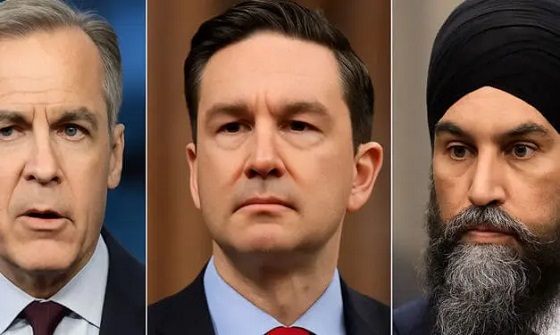
This article supplied by Troy Media.
 By Pat Murphy
By Pat Murphy
The Liberals just proved they’ll do anything to win, including gutting key Trudeau-era policies
With the general election safely in the rear-view mirror, here are some observations.
The Liberal will to power
To me, the most surreal moment came during Mark Carney’s speech on the night he won the Liberal leadership. Raucous cheers ensued when he
declared the abolition of the consumer carbon tax and the retreat from the increase in capital gains inclusion rates. If you knew nothing about Canadian politics, you’d think this jubilation was in response to the assertion of long-cherished Liberal policies and principles.
But, of course, it was nothing of the sort.
In fact, the policies being jettisoned were Liberal in origin and had been hitherto fiercely defended. If you criticized the carbon tax, you were labelled a climate change “denier.” And if you were opposed to the capital gains changes, you were indifferent to increased inequality, the spread of child poverty and various other social ills.
This ability to shamelessly execute dramatic policy flips is indicative of the Liberals’ intense passion for power. And however cynical it may be, it’s one of the keys to their status as Canada’s “natural governing party.”
Thus we have Mark Carney presenting as someone who “just got here,” a tactic designed to disassociate himself from the previous Liberal government. It was immaterial that he was an adviser to that same government, has stocked his team with its alumni and was an early advocate of carbon taxes. Instead of the enthusiastic net-zero hawk, he ran as the sober, economics-savvy technocrat whose banking and private sector experience is tailor-made for the current trade-war turbulence.
Does this mean that Carney has abandoned the ideological agenda of his unpopular Liberal predecessor? Not necessarily—and probably not at all.
Still, it worked politically. Will to power isn’t something to be sneezed at.
Conservative blues
There’s no sugar-coating the fact that it’s been a deeply disappointing election for the Conservatives. After being the “inevitable” government-in-waiting just four months ago, the combination of Justin Trudeau’s departure and Donald Trump’s trade war totally upended the electoral landscape. And to add insult to injury, their leader, Pierre Poilievre, lost his seat. That said, not everything is doom and gloom.
Compared to the actual results from the previous (2021) election, the Conservatives gained 25 seats. Or if you prefer adjusting the 2021 results to
reflect the new electoral boundaries, the seat gain comes to 18. Either way, the direction is non-trivially positive.
The popular vote share of 41.4 per cent is similarly impressive. Looking over the past 60 years, the Conservative median vote was in the 35 to 36 per cent range. You might call that their natural base. Only Brian Mulroney’s fragile coalition ever brought them north of 40 per cent.
And as Poilievre has been criticized for simply playing to the base, it’s fair to ask whether 41 per cent or thereabouts is the party’s new base. If it is, the
Conservative future is potentially promising.
Mind you, Poilievre might not be around to personally reap the rewards.
The NDP debacle
It was the worst of times for the NDP. Their support collapsed, dropping to its lowest ever level in terms of vote share, and they lost official party status. In the process, they shed over 70 per cent of their caucus and were wiped out in voter rich Ontario. Some of this misfortune may be attributed to their propping up the Trudeau government, thus tending to blur the difference between the two parties. So when Trump’s trade war hit, it was easy for NDP voters to flee to Carney’s perceived safe pair of hands.
To the extent that’s true, there’s a historical echo. Between 1972 and 1974, the NDP supported Pierre Trudeau’s Liberal minority in return for various policy concessions. Then the Liberals pulled the plug, winning a majority in the ensuing election while the NDP lost almost half of their seats. It was that will to power again!
This underlines the dilemma confronting parties like the NDP. Do they want to ruthlessly compete for power? Or are they content with shaping public debate, gradually making once-radical ideas seem mainstream and pushing the boundaries of what society sees as politically acceptable?
It’s a very real—and honourable—trade-off choice.
The pollsters
In a post-election interview, poll aggregator Philippe J. Fournier was generally satisfied with his model’s performance. And if you take margins of error into account, he was justified in doing so.
Nonetheless, his final projection had the Liberals at 186 seats and the Conservatives at 124. The respective actuals were 169 and 144. And he
significantly underestimated the Conservatives in Ontario while overestimating the Liberals in Alberta.
Vindication is sometimes in the eye of the beholder.
Troy Media columnist Pat Murphy casts a history buff’s eye at the goings-on in our world. Never cynical – well, perhaps a little bit.
The views, opinions, and positions expressed by our columnists and contributors are solely their own and do not necessarily reflect those of our publication.
Troy Media empowers Canadian community news outlets by providing independent, insightful analysis and commentary. Our mission is to support local media in helping Canadians stay informed and engaged by delivering reliable content that strengthens community connections and deepens understanding across the country.
Business
Canada urgently needs a watchdog for government waste

This article supplied by Troy Media.
 By Ian Madsen
By Ian Madsen
From overstaffed departments to subsidy giveaways, Canadians are paying a high price for government excess
Canada’s federal spending is growing, deficits are mounting, and waste is going unchecked. As governments look for ways to control costs, some experts say Canada needs a dedicated agency to root out inefficiency—before it’s too late
Not all the Trump administration’s policies are dubious. One is very good, in theory at least: the Department of Government Efficiency. While that
term could be an oxymoron, like ‘political wisdom,’ if DOGE proves useful, a Canadian version might be, too.
DOGE aims to identify wasteful, duplicative, unnecessary or destructive government programs and replace outdated data systems. It also seeks to
lower overall costs and ensure mechanisms are in place to evaluate proposed programs for effectiveness and value for money. This can, and often does, involve eliminating departments and, eventually, thousands of jobs. Some new roles within DOGE may need to become permanent.
The goal in the U.S. is to reduce annual operating costs and ensure government spending grows more slowly than revenues. Washington’s spending has exploded in recent years. The U.S. federal deficit now exceeds six per cent of gross domestic product. According to the U.S. Treasury Department, the cost of servicing that debt is rising at an unsustainable rate.
Canada’s latest budget deficit of $61.9 billion in fiscal 2023-24 amounts to about two per cent of GDP—less alarming than our neighbour’s situation, but still significant. It adds to the federal debt of $1.236 trillion, about 41 per cent of our estimated $3 trillion GDP. Ottawa’s public accounts show expenses at 17.8 per cent of GDP, up from about 14 per cent just eight years ago. Interest on the growing debt accounted for 9.1 per cent of
revenues in the most recent fiscal year, up from five per cent just two years ago.
The Canadian Taxpayers Federation (CTF) consistently highlights dubious spending, outright waste and extravagant programs: “$30 billion in subsidies to multinational corporations like Honda, Volkswagen, Stellantis and Northvolt. Federal corporate subsidies totalled $11.2 billion in 2022 alone. Shutting down the federal government’s seven regional development agencies would save taxpayers an estimated $1.5 billion annually.”
The CTF also noted that Ottawa hired 108,000 additional staff over the past eight years, at an average annual cost of more than $125,000 each. Hiring based on population growth alone would have added just 35,500 staff, saving about $9 billion annually. The scale of waste is staggering. Canada Post, the CBC and Via Rail collectively lose more than $5 billion a year. For reference, $1 billion could buy Toyota RAV4s for over 25,600 families.
Ottawa also duplicates functions handled by provincial governments, often stepping into areas of constitutional provincial jurisdiction. Shifting federal programs in health, education, environment and welfare to the provinces could save many more billions annually. Poor infrastructure decisions have also cost Canadians dearly—most notably the $33.4 billion blown on what should have been a relatively simple expansion of the Trans Mountain pipeline. Better project management and staffing could have prevented that disaster. Federal IT systems are another money pit, as shown by the $4-billion Phoenix payroll debacle. Then there’s the Green Slush Fund, which misallocated nearly $900 million.
Even more worrying, the rapidly expanding Old Age Supplement and Guaranteed Income Security programs are unfunded, unlike the Canada Pension Plan. Their combined cost is already roughly equal to the federal deficit and could soon become unmanageable.
Canada is sleepwalking toward financial ruin. A Canadian version of DOGE—Canada Accountability, Efficiency and Transparency Team, or CAETT—is urgently needed. The Office of the Auditor General does an admirable job identifying waste and poor performance, but it’s not proactive and lacks enforcement powers. At present, there is no mechanism in place to evaluate or eliminate ineffective programs. CAETT could fill that gap and help secure a prosperous future for Canadians.
Ian Madsen is a senior policy analyst at the Frontier Centre for Public Policy.
The views, opinions, and positions expressed by our columnists and contributors are solely their own and do not necessarily reflect those of our publication.
© Troy Media
Troy Media empowers Canadian community news outlets by providing independent, insightful analysis and commentary. Our mission is to support local media in helping Canadians stay informed and engaged by delivering reliable content that strengthens community connections and deepens understanding across the country.
-
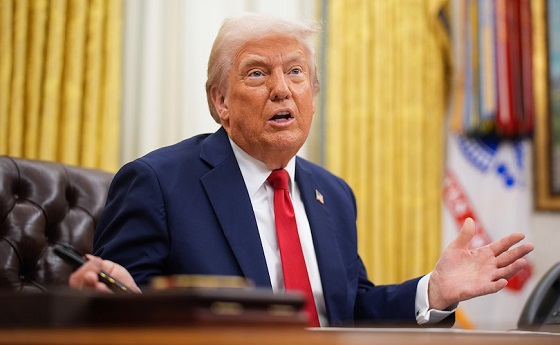
 Business1 day ago
Business1 day agoTrump’s bizarre 51st state comments and implied support for Carney were simply a ploy to blow up trilateral trade pact
-

 espionage2 days ago
espionage2 days agoLongtime Liberal MP Warns of Existential Threat to Canada, Suggests Trump’s ’51st State’ Jibes Boosted Carney
-
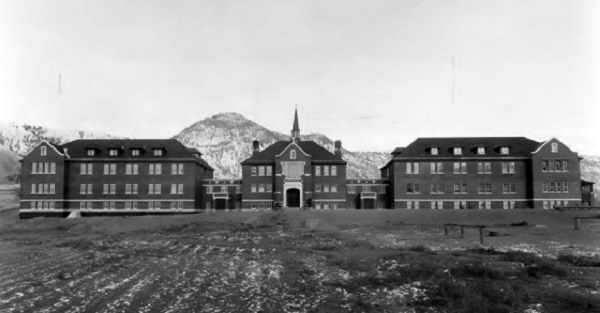
 Frontier Centre for Public Policy1 day ago
Frontier Centre for Public Policy1 day agoTrust but verify: Why COVID-19 And Kamloops Claims Demand Scientific Scrutiny
-
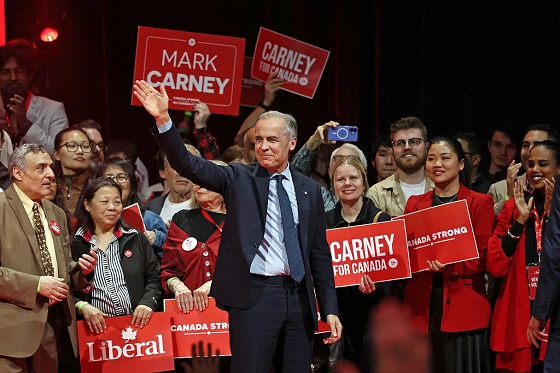
 Alberta17 hours ago
Alberta17 hours agoAlberta’s future in Canada depends on Carney’s greatest fear: Trump or Climate Change
-
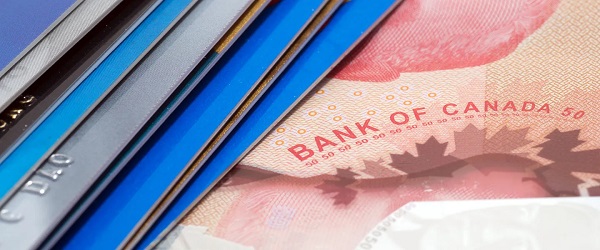
 Business1 day ago
Business1 day agoNew federal government plans to run larger deficits and borrow more money than predecessor’s plan
-
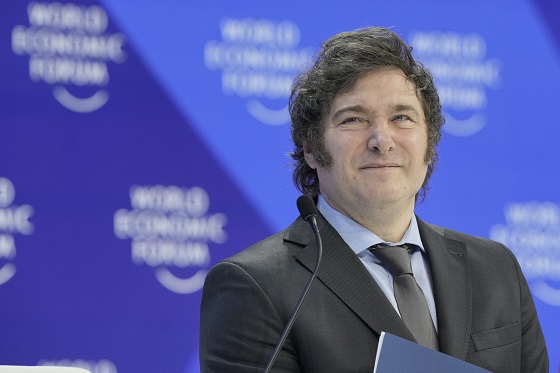
 International1 day ago
International1 day agoJavier Millei declassifies 1850+ files on Nazi leaders in Argentina
-

 COVID-191 day ago
COVID-191 day agoStudy finds Pfizer COVID vaccine poses 37% greater mortality risk than Moderna
-
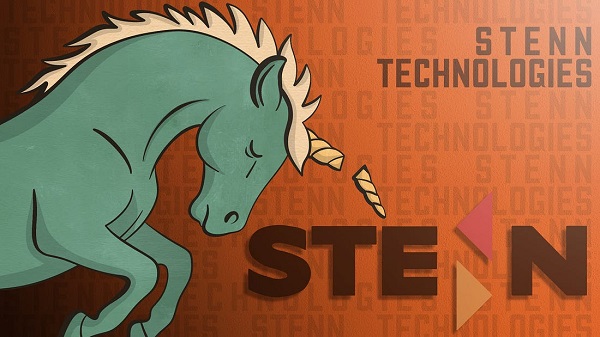
 Business2 days ago
Business2 days agoLosses Could Reach Nearly One Billion: When Genius Failed…..Again

